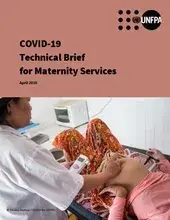The National Bureau of Statistics (NBS) will develop an integrated information system that will provide complex and timely statistical data on population and migration, including internal and external migration. This system aims to capitalize the state registers by integrating data on population, vital events (such as births and deaths, marriages and divorces), demographic characteristics, migration and mobility of persons, existing in administrative data sources assessed as relevant and sufficiently qualitative for the production of official statistics in demography.
The information system is developed on the basis of international experiences, where statistical offices widely uses the existing administrative data for production of official statistics, and will provide disaggregated data on multiple socio-demographic dimensions at local and national level. These objectives will be achieved within the project implemented by the NBS in collaboration with the United Nations Population Fund, with the financial support of the India-UN Development Partnership Fund during the period 2020-2022, with a budget of about 550 thousand USD.
Director General of NBS, Vitalie Valcov, says that ‘the project, in particular, aims to intensify the exchange of data between the NBS and the holders of public administrative registers and establishment of a single statistical database, which would allow the Bureau to produce statistical indicators related to population estimates, migration and other relevant demographic statistics in a timely manner, reliable and internationally comparable’. In the medium and long term, the functionality of this information system will make possible the subsequent transition from censuses of the traditional population to those conducted by combined methods (population census and partial pre-completion of registers), as well as censuses conducted entirely based on administrative sources. This would be a qualitative leap in the development and modernization of national statistics and will reduce the response burden on respondents (the country's population), the costs and time required for implementing censuses.
UNFPA commits to support the National Bureau of Statistics and other partners in strengthening the national capacities in collecting, analysing and disseminating relevant population data. ‘Population data disaggregated at national and sub-national level are essential and help the Government to promote inclusive development policies leave no one behind, as provided by the Sustainable Development Agenda’, stated Nigina Abaszada, UNFPA Representative in Moldova.
India-UN Development Partnership Fund and UNFPA Moldova will provide the necessary support to the National Bureau of Statistics to align the national statistics to the international practices and improve the use of administrative data for statistical purposes. The project helps to implement the Strategy for the Development of the National Statistical System and increases the availability of data in tracking progress in achievement of the Sustainable Development Goals in the Republic of Moldova.
‘I have noticed remarkable progresses in implementing the transformative commitments of 2030 Agenda for Sustainable Development through the funding of India-UN Development Partnership Fund. I am impressed to see how Moldova follows its development goals and aspirations with the help of India-UN Development Partnership Fund and I’m looking forward to see the next results’, stated UNOSSC Director and Envoy of the UN Secretary-General, Jorge Chediek.
The United Nations Office for South-South Cooperation (UNOSSC) manages India-UN Development Partnership Fund in order to strengthen the capacity of developing countries depending on their national aspirations and values. The Office provides policy support in order to facilitate the implementation of internationally agreed development goals.





